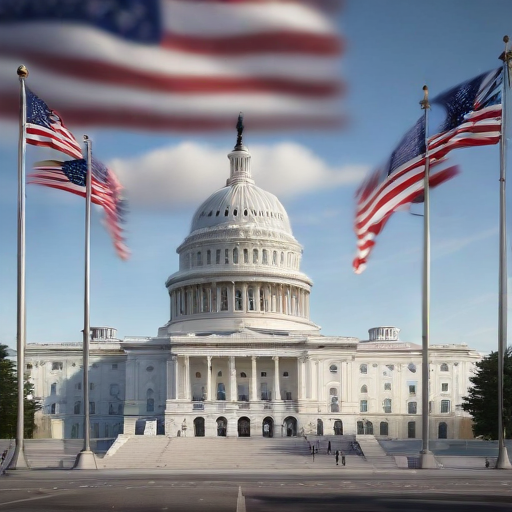Republicans in Congress have recently finalized their leadership teams for the upcoming session, marking a significant shift in the Senate while maintaining continuity in the House. South Dakota’s Senator John Thune has been elected as the new majority leader of the Senate, succeeding Mitch McConnell of Kentucky, who opted to retire from leadership after holding the role since 2007. Thune’s victory in a closed-door ballot came as he faced competition from fellow Senators John Cornyn of Texas and Rick Scott of Florida.
In his first statement as majority leader, Thune expressed his enthusiasm about working with both his colleagues in the Senate and the House to advance the legislative agenda set forth by former President Donald Trump. He emphasized the GOP’s responsibility to rectify what he termed the disorder generated by the current administration while delivering on Trump’s priorities, such as border security and energy policy.
Thune also highlighted his commitment to inclusive leadership, stating he aims to foster unity within the Republican Conference to effectively push the party’s ambitious agenda. His election was supported by several Senate colleagues, including South Dakota Senator Mike Rounds, who noted Thune’s ability to earn respect and build trust over the years.
In the House of Representatives, many Republican leaders secured their positions without contest. Mike Johnson of Louisiana was nominated for Speaker, needing to win the majority vote in January to solidify his role. Other key positions were filled by familiar faces such as Steve Scalise as House Republican leader and Tom Emmer as the whip.
As Republicans prepare for their new session, there remains a sense of anticipation and readiness to enact legislation starting January 3. While acknowledging potential obstacles, Emmer expressed optimism, underscoring the importance of unity and collaboration within the party.
This new leadership structure not only illustrates a transition in power dynamics but also signals a concerted effort by Republicans to consolidate their agenda while navigating the complexities of legislative governance in a divided Congress. The upcoming Congress presents an opportunity for Republicans to define their path and assert their influence on key issues, potentially shaping the political landscape in the lead-up to future elections.
Overall, this leadership transition comes with a hopeful outlook for the GOP as they gear up to promote their policy goals, demonstrating resilience and a commitment to achieving their objectives in the new Congress. This proactive stance reflects a belief in the potential for positive change under their leadership.
